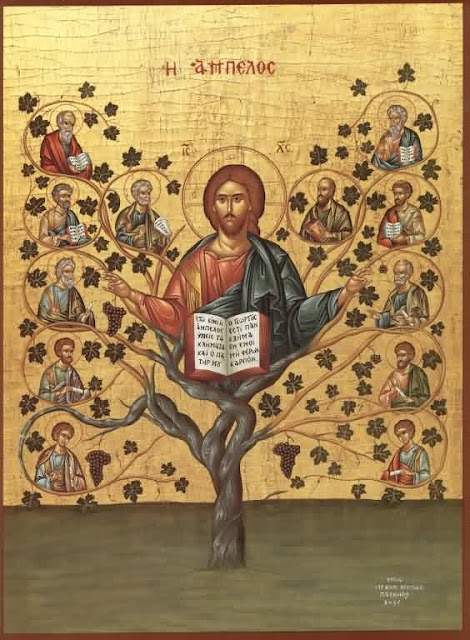Maybe it is just a phenomenon of
middle age,
but I sometimes find myself walking
into a room
and having to stop and ask, “what was it that I come in here for?
What was it that I was going to do?”
More significantly, and this too
might be a phenomenon of middle age,
I sometimes find myself stopping in
the midst of my daily life,
in the middle of some part of my job
or some family chore,
and asking myself, “why am I doing
this?
What is the larger context that made
this activity make sense?”
I think it's what they call a mid-life crisis.
I think it's what they call a mid-life crisis.
But whatever our age, I suspect all of
us have those moments
when we pause in the middle of our
everyday tasks
and ask, “why am I doing this?”
I find this is no less true in the
life of the Church.
It is possible to find ourselves
pausing
in the routine activities
associated with this thing we call
“Church”
and asking “why am I doing this?
What was it that I come in here for?”
Maybe you are someone whose
participation in the Church
is focused mainly on coming to Mass
and trying to live a Christian life.
Or maybe you are one of those more
“activist” parishioners,
who volunteers to help with all sort
of parish activities.
Or maybe you are even what might be
called
a “professional” Catholic,
someone who works for the Church
or devotes most of your time to
Church-related activities.
Whatever the nature and level
of
your connection to the Church,
I suspect all of us have those
moments
when we pause and ask,
“What was it that I came in here for?
What was it I was going to do?”
Whether your involvement is on the
level
of being a “professional” Church
person
or an “activist” parishioner
or even of simply coming to Mass
I think we can all lose sight of the
larger reality
that helps us understand
why we are
doing what we are doing;
we can all lose the broader context
that makes this whole Church thing
make sense.
And when this happens, we can become
discouraged.
We focus on all the imperfections
and disappointments
that go along with Church life.
If your contact with the Church is
mainly coming to Mass
it might be changes in the
translation of the liturgy
that you stumble over
or silly and annoying homilies
or political stands taken by the
Church
that you disagree with.
If you are an “activist” parishioner
it might be a sense of being
under-appreciated
or of frustration that there are not
more people
who share your level of commitment.
If you are a “professional” Catholic
it might be anger at clueless or
even bullying superiors
or what you perceive as the lack of
response
among those you serve.
Whether we are correct
in our
feelings about these things or not,
whether the things that irk us
are
truly irksome or not,
if we make them the focus of our
attention,
without keeping in mind the larger
context,
this is a recipe for discouragement
and disappointment
that will end either in a perpetual
state
of low-level bitterness
or even an eventual abandonment
of
the Church entirely.
It is only if we keep in mind the
larger context
of all the myriad activities
that go
into this thing called Church
that we will find the Church
life-giving.
But what is this larger context?
Today’s gospel puts it very simply:
“I am the vine, you are the
branches.
Whoever remains in me and I in him
will bear much fruit,
because without me you can do
nothing.”
If we forget that the Church
is really about our unity in and
with Jesus Christ
then we will be overwhelmed
by the
Church’s human imperfections,
which is really a matter of being
overwhelmed
by our own imperfections.
If we lose a sense of the Church
as the reality of our being joined
together in Jesus Christ
through the sacraments and the
scriptures
and our love for one another,
then disappointment and disillusion
are inevitable.
If we cannot see the Church first
and foremost
as that which connects us to each other
and to the one without who we can do
nothing,
then it is just one more sphere of
petty politics.
So when we find ourselves asking
concerning our life in the Church
“what was it that I come in here for?”
perhaps we need to step back and look
for the reality
of the vine onto which we have been
grafted as branches,
the vine that unites us to one
another,
the vine without which we can do
nothing,
the vine that is the risen and
living Jesus Christ.
